Sikhs’ Contribution to India’s Independence and Global Justice Movements
In the rich history of the Sikh community, one principle stands above all else: the unwavering commitment to justice and equality. Sikhs have played a pivotal role in India’s independence struggle and left an indelible mark on global movements for human rights. Their story is one of resilience, sacrifice, and unyielding courage. This spirit, rooted in the teachings of the Sikh Gurus, has carried them through centuries of oppression and adversity, with their heads held high and hearts committed to a better world.
A Tradition of Resistance: Sikhs Against Tyranny
The Sikh faith was born in the late 15th century, at a time when India was suffocating under the weight of social injustices, caste divisions, and religious persecution. Guru Nanak Dev Ji, the founder of Sikhism, rose as a beacon of hope, teaching that all people—regardless of religion, caste, or gender—are equal. He rejected the oppressive norms of the time and preached compassion, unity, and resistance against tyranny. His revolutionary message resonated deeply with the masses, sowing the seeds of a movement that would inspire future generations.
As the Sikh faith evolved, so did its role in fighting for justice. Guru Arjan Dev Ji, the fifth Guru, became the first Sikh martyr, tortured and executed by the Mughal Emperor Jahangir for standing firm in his belief in religious freedom. Guru Arjan’s brutal martyrdom wasn’t just a loss for the Sikhs; it was a wake-up call. His sacrifice inspired Sikhs to stand firm against oppression. The tenth Guru, Guru Gobind Singh Ji, later formalized this spirit of resistance by establishing the Khalsa, a community of warrior-saints dedicated to protecting the weak and fighting injustice wherever it reared its ugly head.
India’s Independence Struggle: Sikh Heroes in Action
When British colonizers set foot in India, they quickly realized that the spirit of resistance ran deep in Sikh blood. Even though Sikhs represented only a tiny fraction of India’s population, their role in the independence movement was monumental. The Sikhs, with their belief in standing for the oppressed, joined hands with others to fight the British Empire’s oppressive rule. Their contribution was not just of numbers but of sacrifice, passion, and unwavering determination.
The Ghadar Movement: A Call to Arms
It was 1913 when the Ghadar Movement was born—a call for Indians abroad to rise against British rule. At its heart were Sikhs from Canada and the United States, who had faced harsh discrimination in foreign lands. These men, driven by their thirst for justice, sought not just freedom from colonial oppression but dignity for every Indian. Sohan Singh Bhakna, Lala Hardayal, and other Sikh revolutionaries banded together, ready to sacrifice their lives for a cause greater than themselves. Their rallying cry echoed across the oceans, inspiring thousands of Indians to join the fight for independence.
Bhagat Singh: A Martyr for Freedom
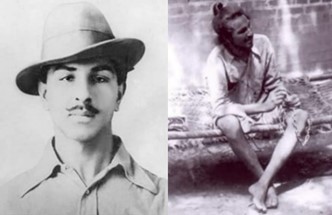
The name Bhagat Singh ignites a sense of pride and sorrow in every Indian heart. Though young, Bhagat Singh’s determination to see India free was as fierce as any seasoned revolutionary. Inspired by Sikh ideals of courage and selfless sacrifice, he embarked on a path that would lead to his martyrdom at just 23. His fiery spirit, writings, and fearless confrontation with the British made him an immortal icon of India’s freedom struggle. Bhagat Singh wasn’t just fighting for a free India—he was fighting for a just India where all people could live with dignity. His execution shook the nation, but it also fueled the fire of resistance that would soon consume British rule.
Jallianwala Bagh: The Wounds of Amritsar
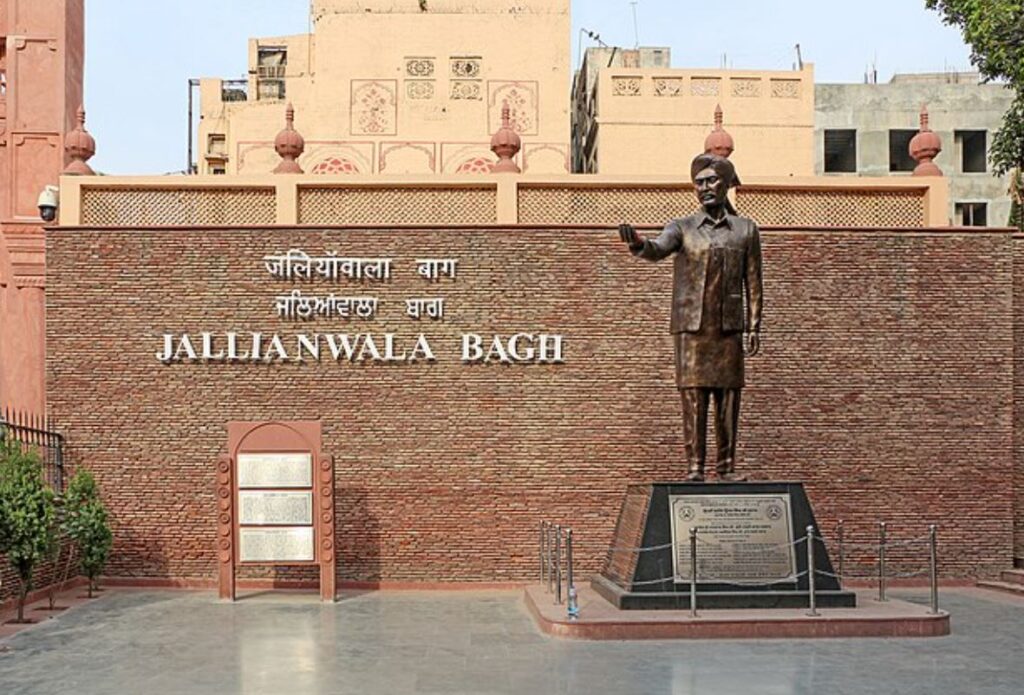
April 13, 1919, is a day seared into Sikh and Indian history alike. On this fateful day, thousands of peaceful protesters gathered in Jallianwala Bagh, Amritsar, to stand against the oppressive Rowlatt Act imposed by the British. What followed was a massacre. General Dyer, without warning, ordered his troops to open fire on the unarmed crowd, killing hundreds in cold blood. Many of those martyrs were Sikhs who gave their lives in the name of freedom. The brutality of Jallianwala Bagh united Indians across the country, with Sikhs standing at the forefront of the protests, refusing to bow down in the face of terror.
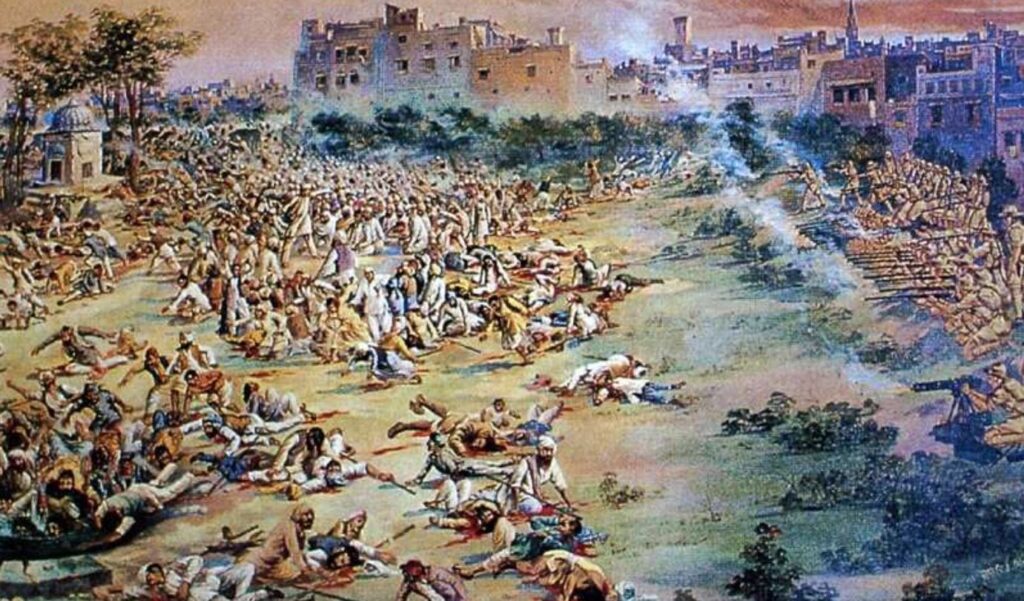
Global Movements for Justice: Sikhs Fighting for Equality Everywhere
The Sikh struggle for justice has never been confined to the borders of India. Across the globe, wherever oppression has raised its head, Sikhs have answered the call for resistance.
The Komagata Maru: A Fight Against Racism
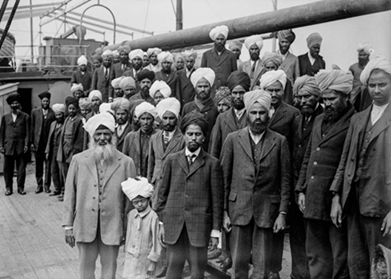
In 1914, a ship called the Komagata Maru set sail from Hong Kong, carrying 376 passengers, mostly Sikhs, headed for Canada. But upon arrival, the passengers were denied entry, victims of racist immigration laws that discriminated against Asians. For two months, these Sikhs were stranded in the harbor, defying the Canadian government’s inhumane treatment. Though they were eventually forced to return to India, the Komagata Maru incident became a symbol of the Sikh fight against injustice, not just in India but across the world.
Standing Against Apartheid in South Africa
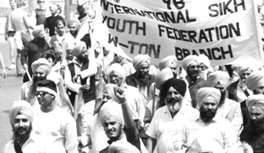
In South Africa, where racial segregation under apartheid brutalized millions, Sikhs were among the first to stand in solidarity with the oppressed. Many Sikhs worked alongside Mahatma Gandhi during his time in South Africa, fighting for the rights of Indian labourers and the native black population. Their role in the fight against apartheid was a natural extension of their belief in the oneness of humanity, regardless of race or religion.
The Spirit of Seva: Sikhism’s Legacy in Human Rights
At the core of every Sikh’s fight for justice is the concept of Seva—selfless service. Sikhs believe that serving humanity is one of the highest forms of devotion. This belief has inspired them to organize free meals for millions, offer humanitarian aid during natural disasters, and stand with oppressed communities worldwide. Whether it’s the Sikh Langar feeding hungry protesters during the farmer protests in India or Sikh organizations in the West advocating for immigrant rights, the spirit of Seva continues to drive Sikh activism.
A Legacy of Sacrifice and Justice
The Sikh contribution to India’s independence and global movements for justice is a story of resilience, bravery, and relentless hope. It’s a testament to the teachings of the Gurus, who inspired their followers to fight for a world where all people, regardless of their differences, could live with dignity. From the martyrdom of Guru Arjan Dev Ji to Bhagat Singh’s final stand, the Sikhs have always been willing to sacrifice for the greater good.
Their fight for justice is not just a chapter in history—it’s a living legacy, a reminder that the struggle for equality and human rights continues. And the spirit of the Khalsa, the warrior-saint community, still burns bright, calling on all of us to stand up against injustice, to serve selflessly, and to fight for the freedom of all.
In a world where oppression still exists, the Sikh community’s story serves as a powerful beacon of hope and resistance, reminding us that the battle for justice is far from over—. Still, we are never alone in fighting it.

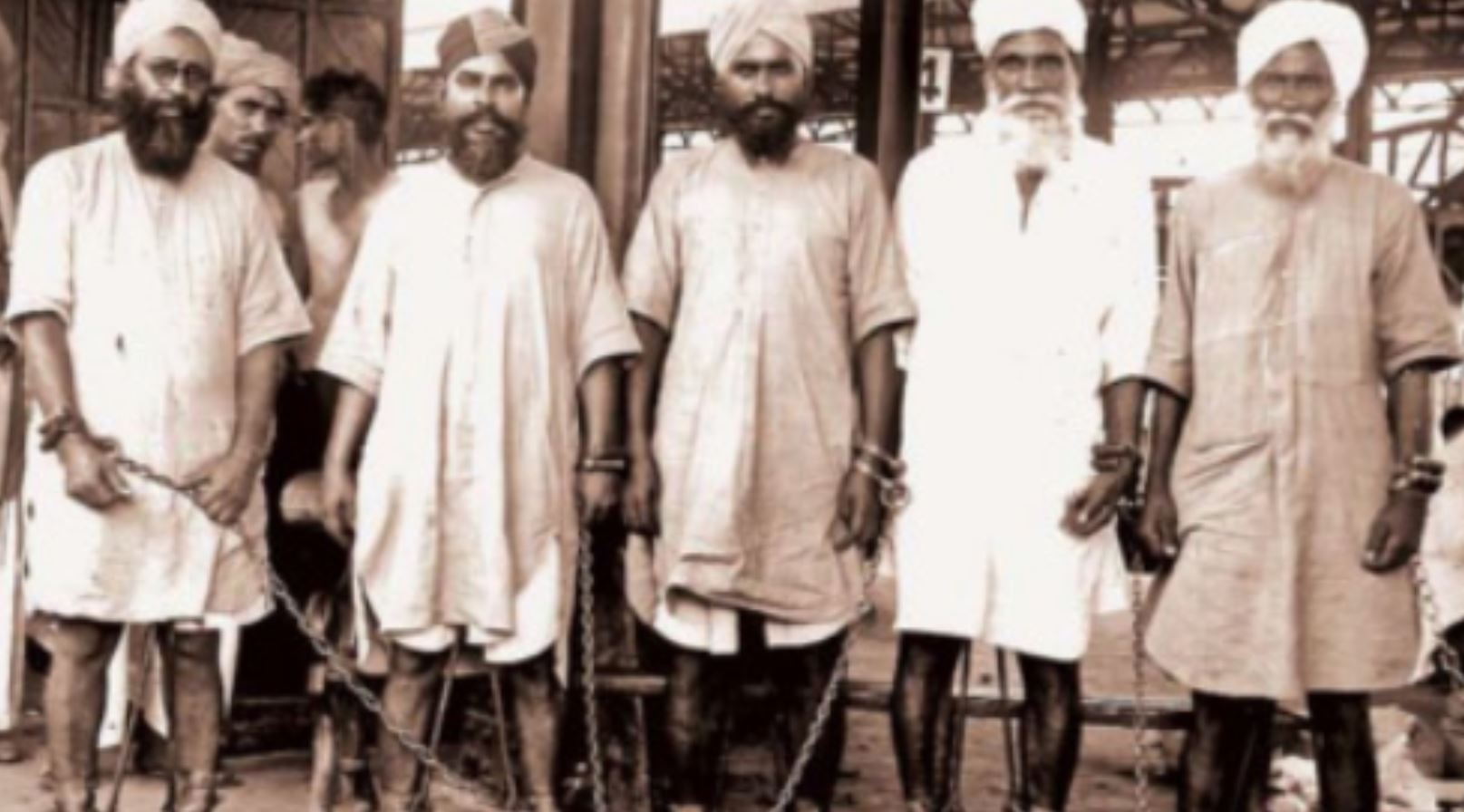
Leave a Reply